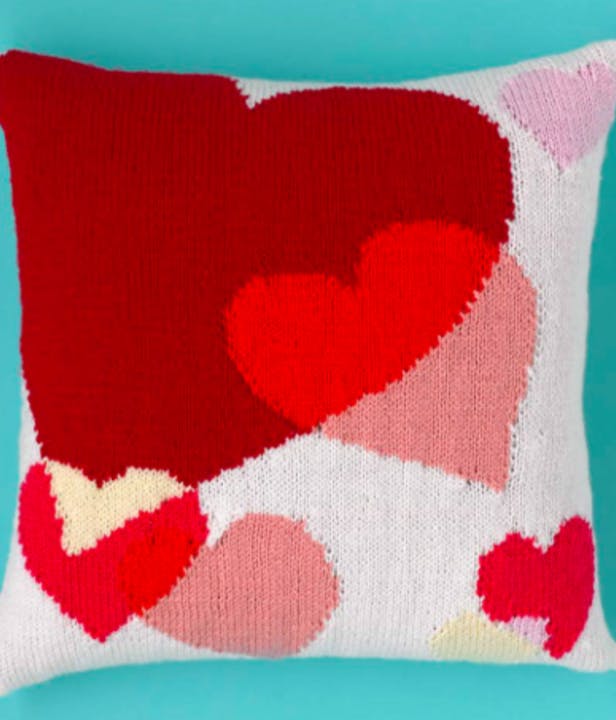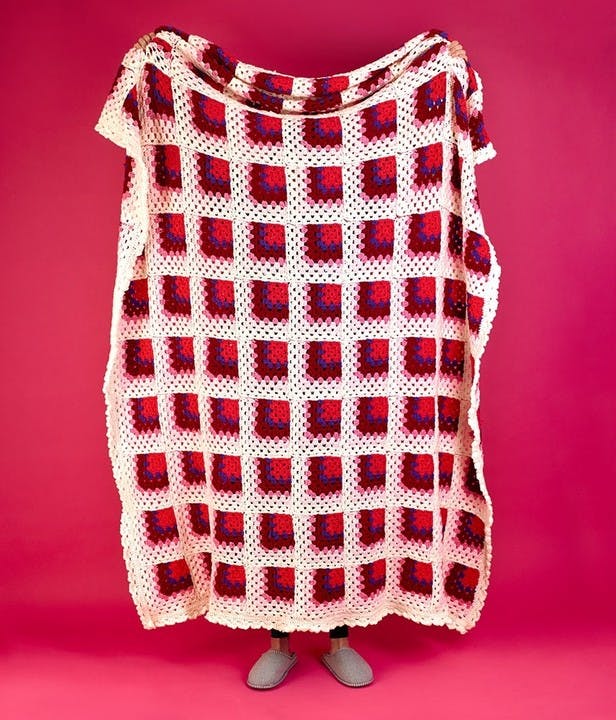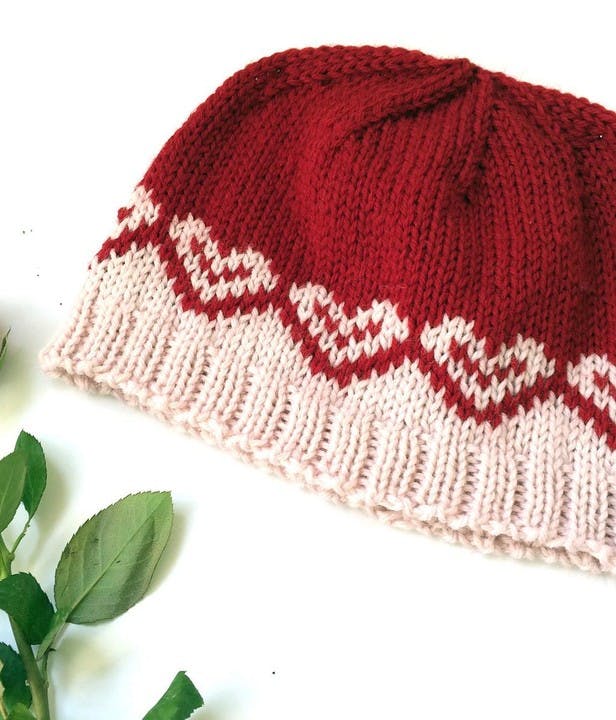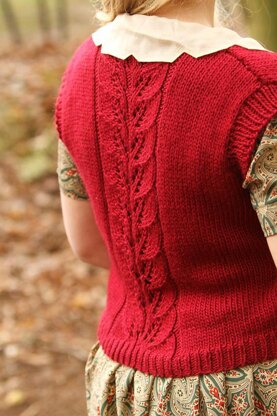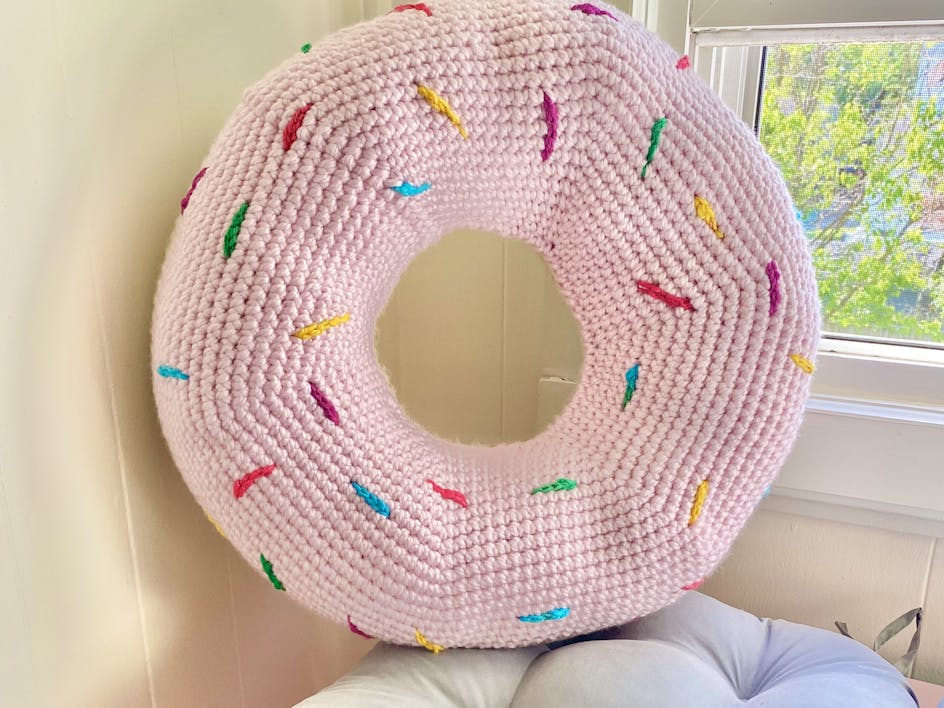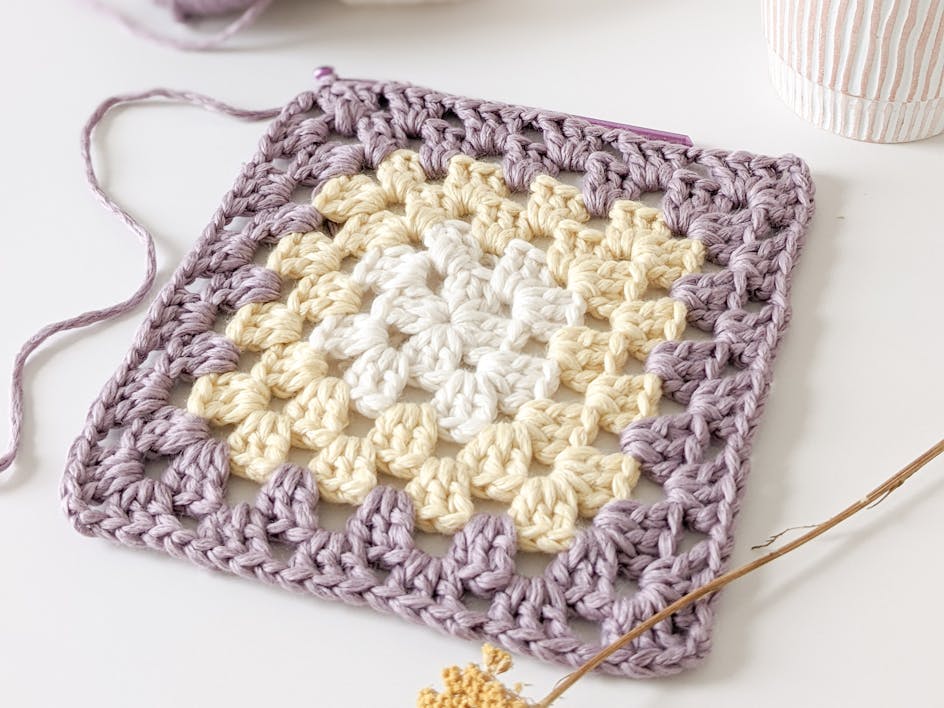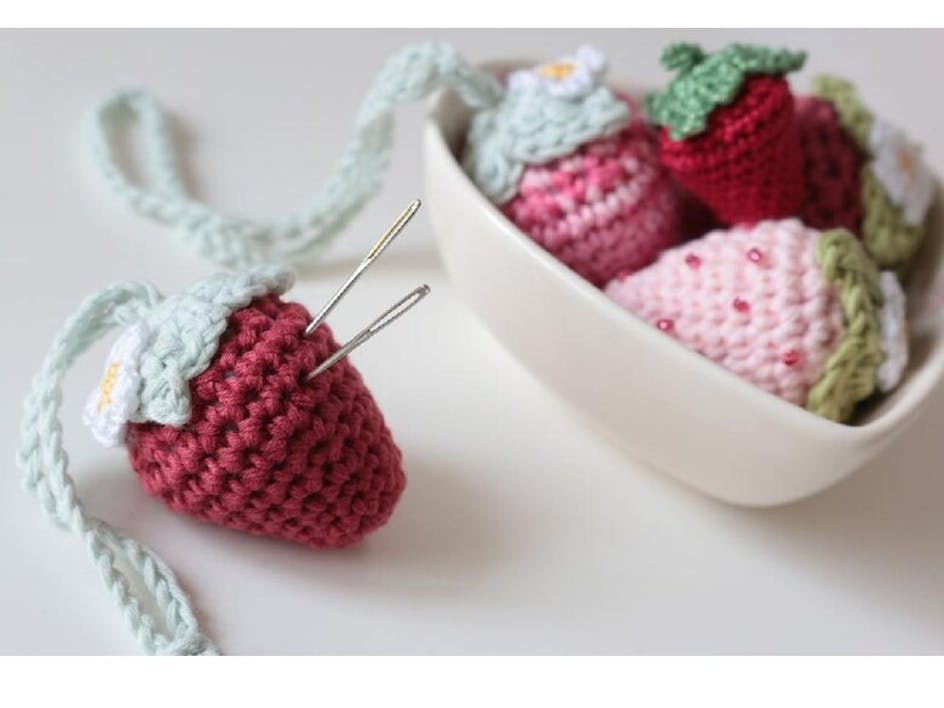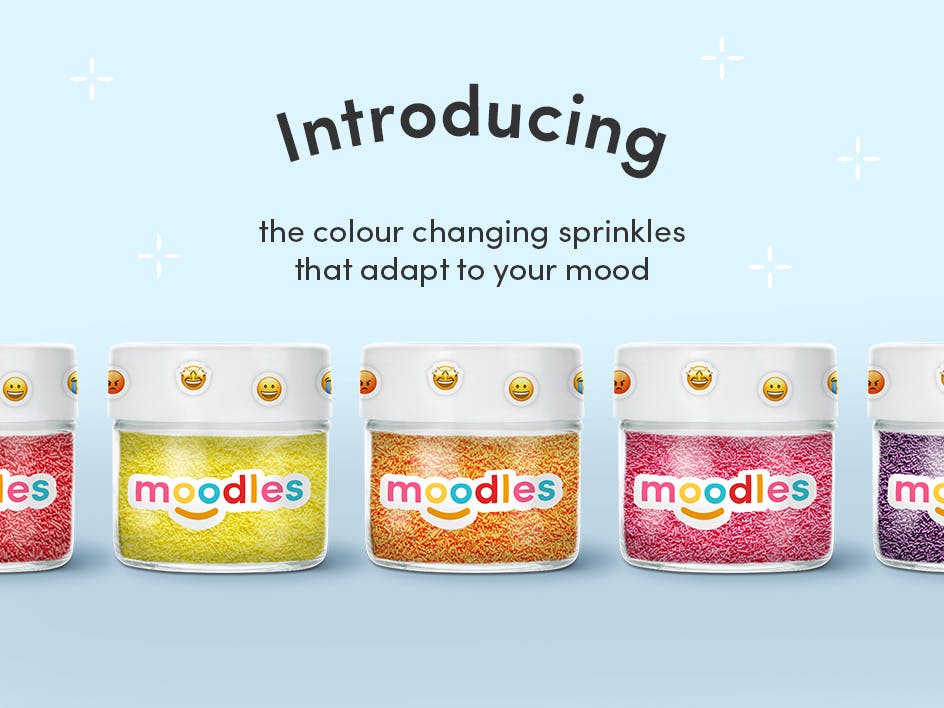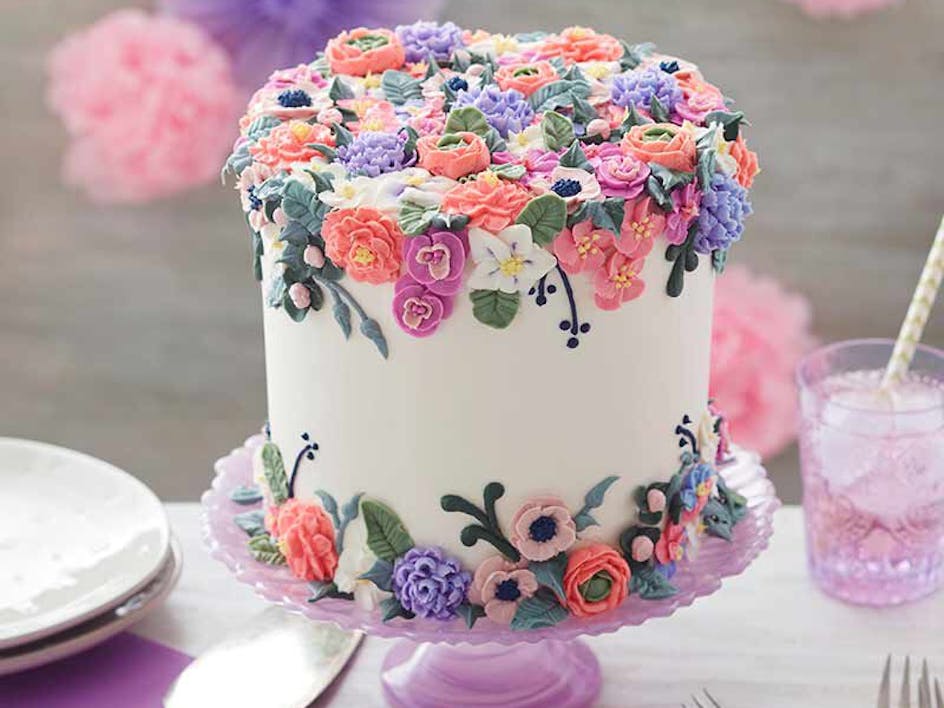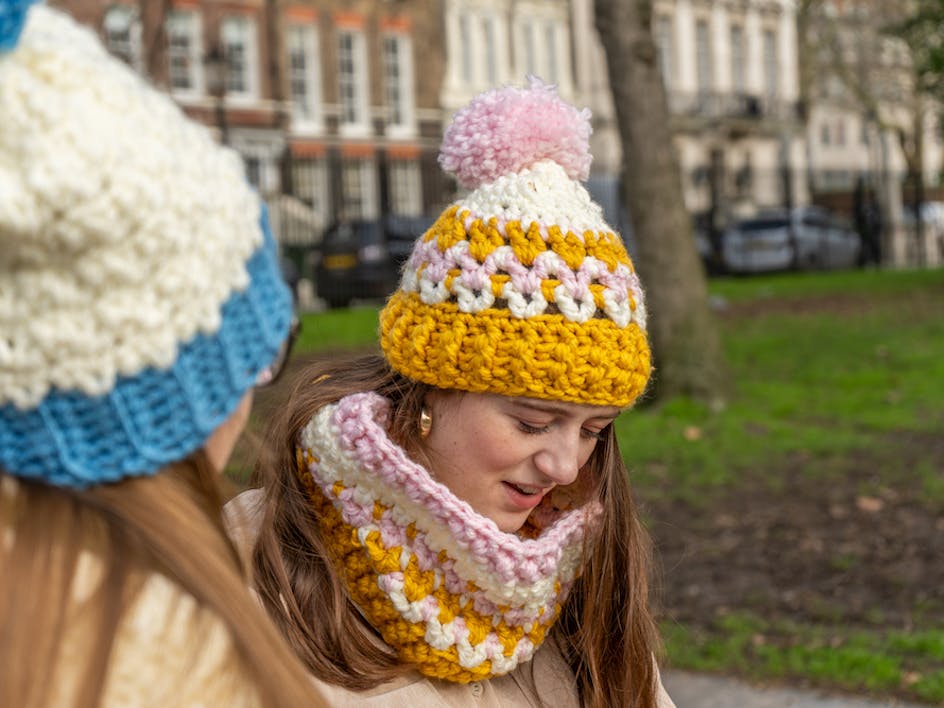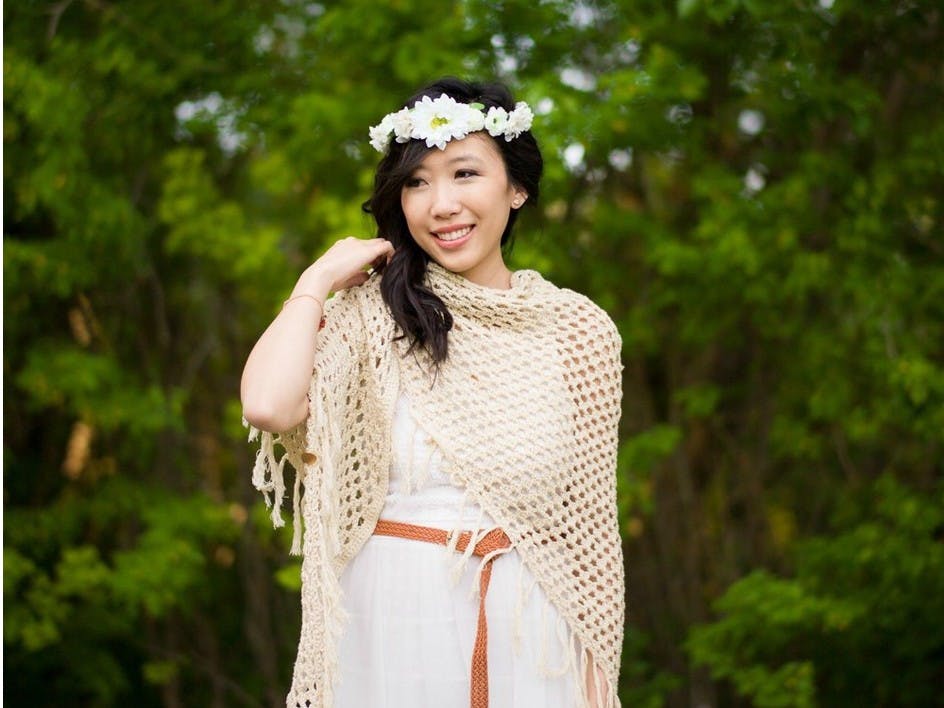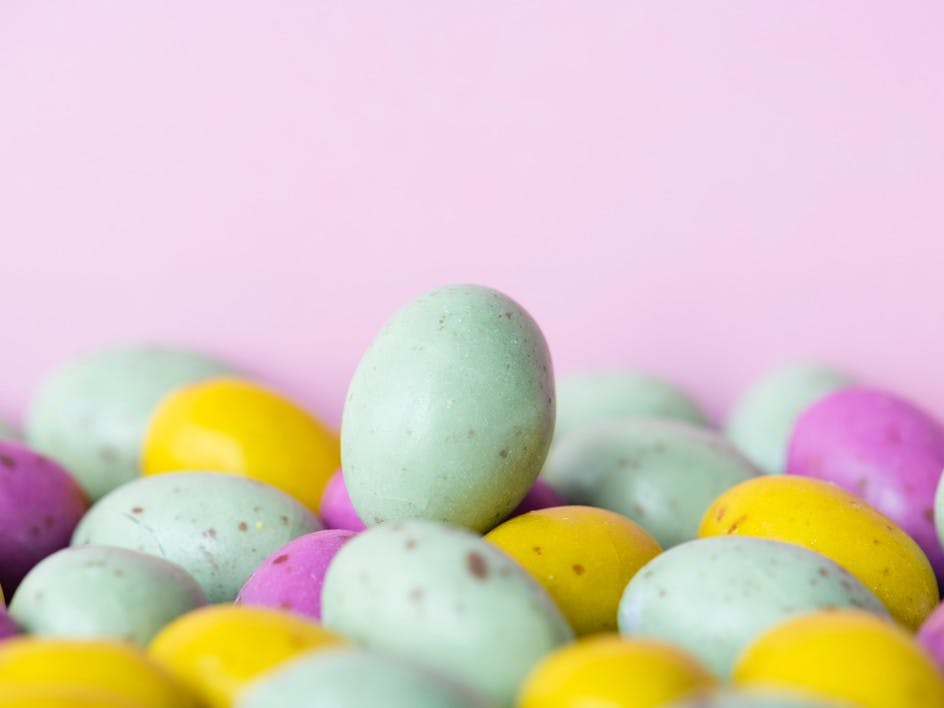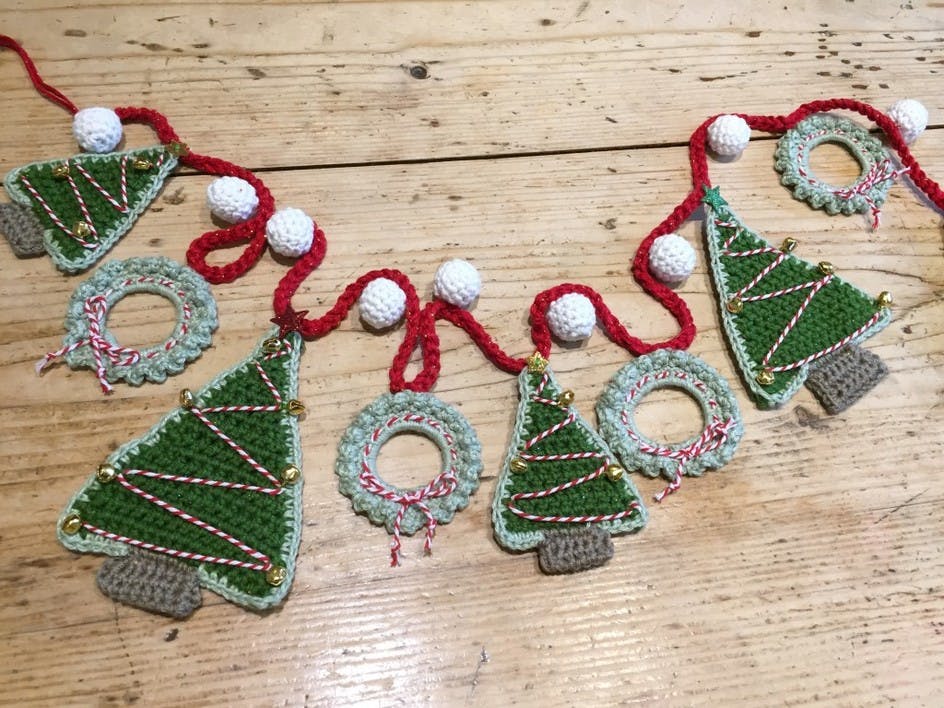Knitting in red and pink, from scarlet to cherry blossom
Published on 6 February 2019 By Merion 4 min read
Scarlet, vermillion, cochineal, crimson, blood, brick, chilli, lipstick, ruby, tomato, heart, strawberry, garnet, carnelian, cherry, ketchup, oxblood
Full of power and passion, red has been with us since the dawn of human history, making statements right back to its first uses as body paint and cave drawings 250,000 years ago. Scientists believe Neanderthals were the first to make red ochre from hematite, and later, artists from the Upper Paleolithic period adorned cave walls with bison and hand prints using the brightest, boldest colour they could find: red.
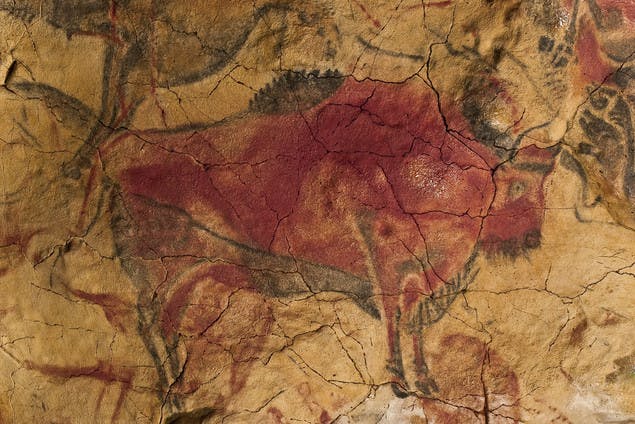
Whatever your red - from deep burgundy to sweet chilli, wear it with passion!"
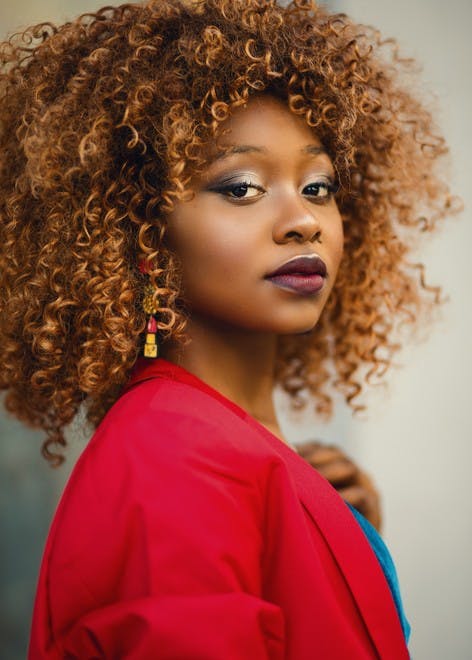
Egyptian mummies were wrapped in linen dyed with hematite, Inca deities were adorned in red, Roman generals, kings and queens, Catholic cardinals and Father Christmas - red is as potent today as it was thousands of years ago.
It is the colour of love, passion and excitement, from red roses on Valentine’s Day to daring driving in that most famous of bright red cars, the Ferrari.
Delicious, ripe strawberries and deep crimson red wine are rich with hedonism, and the very presence of red is said to heighten blood pressure, and increase our respiration rates. In China, red is the symbolic colour of happiness and luck, prosperity and protection. As far back as 2,000 BC it was said to have spiritual power, and used to paint doorways to repel demons. It is the colour of life-force, and when we wear it, we are empowered - we feel bold and full of life.
Our favourite yarns for red
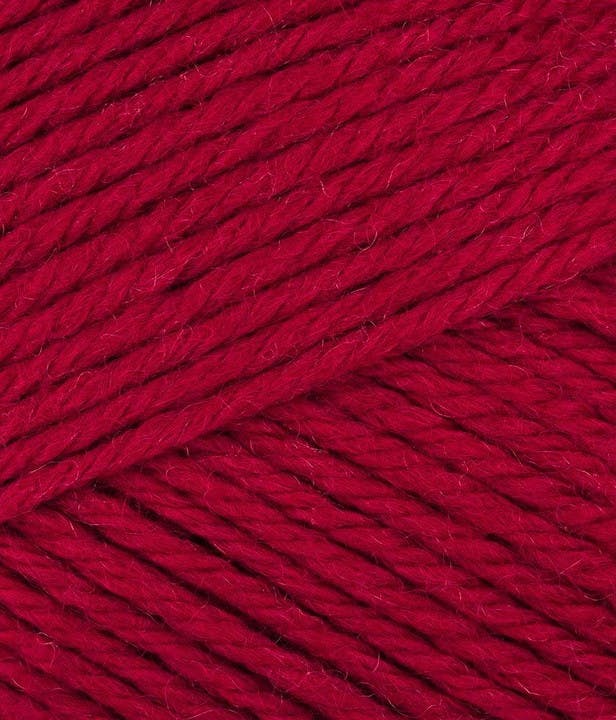
Paintbox Yarns Wool Mix Aran in Pillar Red
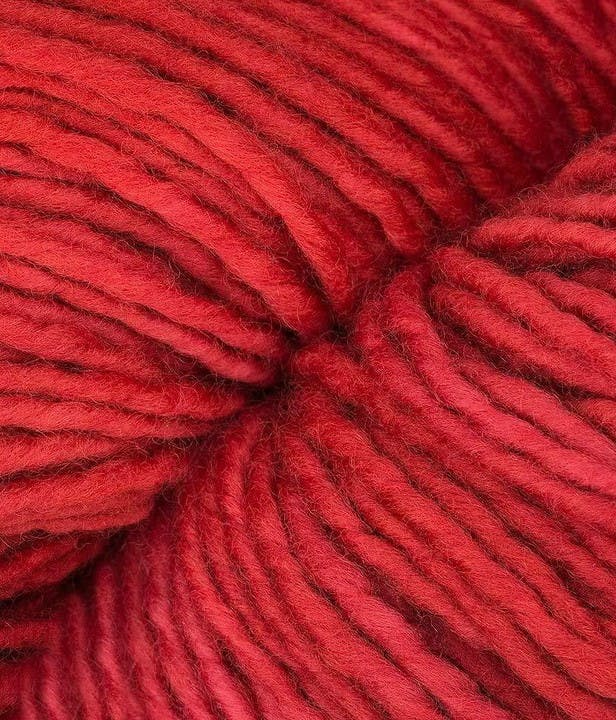
Malabrigo Worsted in Sealing Wax
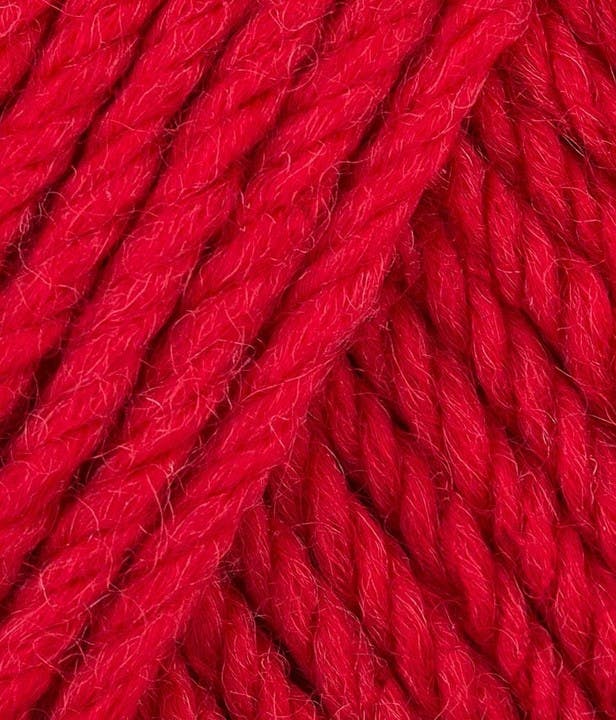
Debbie Bliss Cashmerino Aran in Crimson
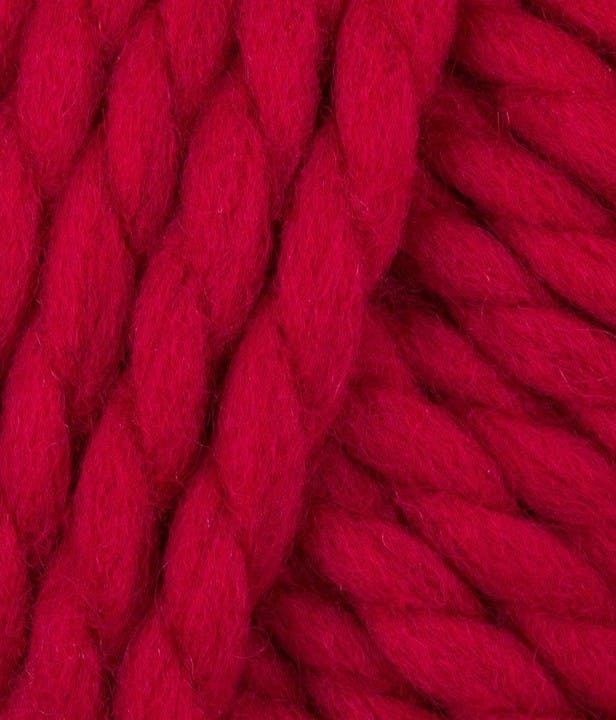
MillaMia Naturally Soft Super Chunky in Lingonberry
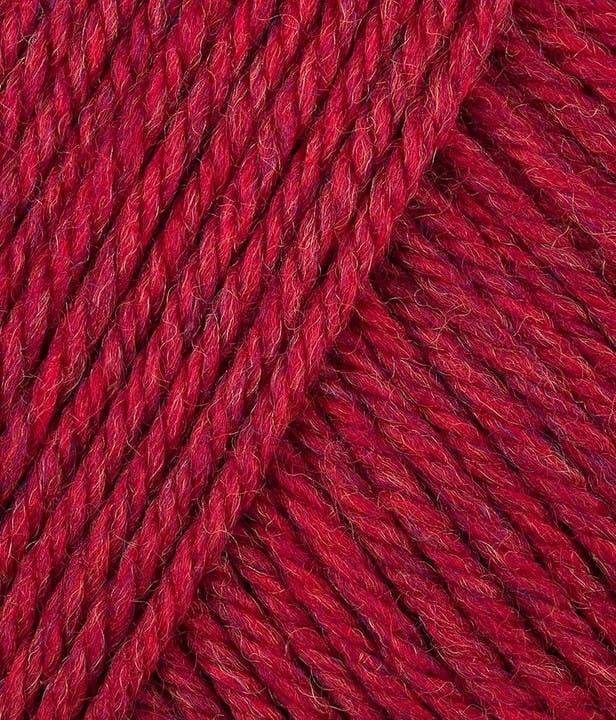
Cascade 220 Superwash in Christmas Red Heather
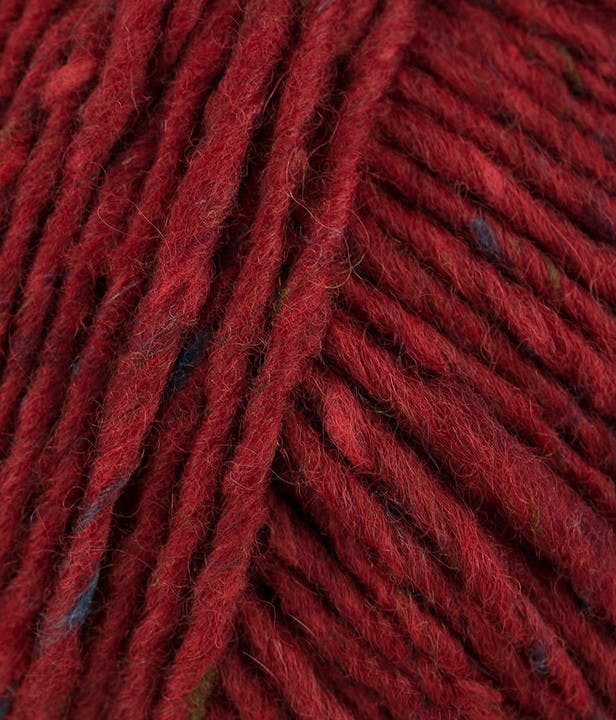
Debbie Bliss Donegal Luxury Tweed Aran in Red
Free patterns for red
More patterns for red
Fuschia, ballet pink, rouge, flamingo, candyfloss, orchid, sugar pink, fondant, blush pink, watermelon, cerise, cherry blossom, carnation, aramanth, old rose
Pink
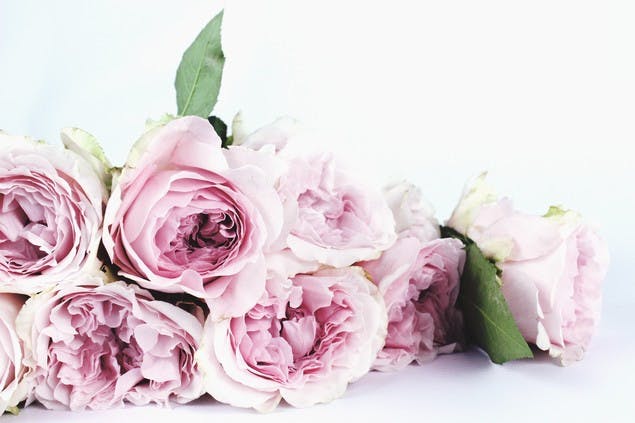
Sweet, playful, charming and feminine, pink is the colour of romance, of laughter, glee and candyfloss. It represents fun, sweetness and innocence, and is the perfect antidote when you’re feeling flat.
Pink is a young colour, made popular during the 18th century when the Renaissance artists fell in love with it, creating paintings full of billowing dresses swishing through the air on rose garlanded swings, and courtiers chasing their amours through enchanted forests. Contrary to today’s ‘blue is for boys, pink is for girls’ mantra (and the backlash that goes with it), pink was the favoured colour for boys to wear right up until the turn of the century. Pink, thanks to its strength and depth, was considered masculine because it is a paler shade of red, which was then considered a far more dominant colour than blue or green.
Pink is a joyful colour to wear, despite its modern connotations, and is just as fabulous in its palest blush incarnations to deep, rich raspberry tones.


How to wear red and pink
Wearing red is not for the faint-hearted, but you don’t need to wear a bright lipstick red - choose a deep burgundy, a classic cranberry or Christmas red. There is a shade of pink for everyone - from the barest ballet pink or hot shocking fuschia, but pink works particularly well with cool skin tones.
Skin tone is either warm, cool or neutral (test this by looking at the inside of your wrist - if the veins appear blue or purple you have cool skin, if they appear green, you have warm skin - and if they appear neither one or the other, you have neutral skin.)
Neutral skin tones suit all kinds of red, particularly orange-based reds. Cool and neutral skin tones suit blue based pinks, and warm skin tones lean more towards coral and salmon pink.
On the wheel of colour, red and pink are next to each other, and work well together - but both work wonderfully with grey, charcoal, black and white - and especially with denim and navy. Soft pinks combine gorgeously with olive green, primrose yellow and gentle lilacs, too.
Our favourite yarns for pink
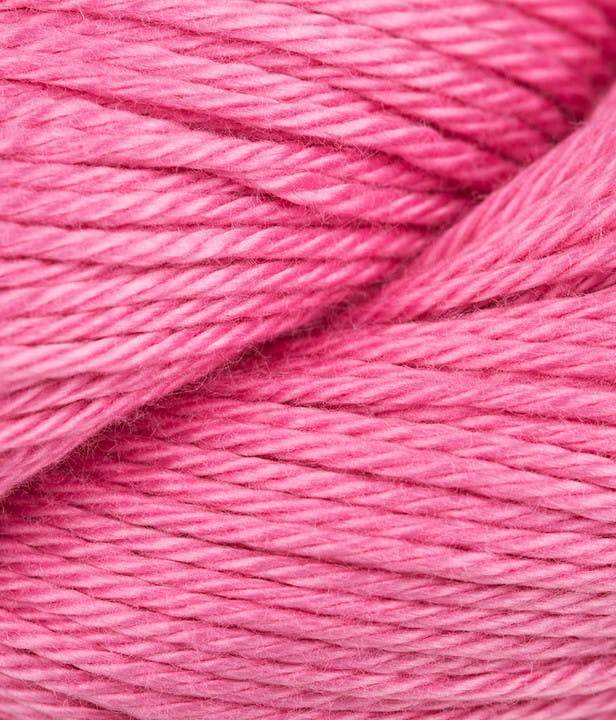
Cascade Ultra Pima in Primrose
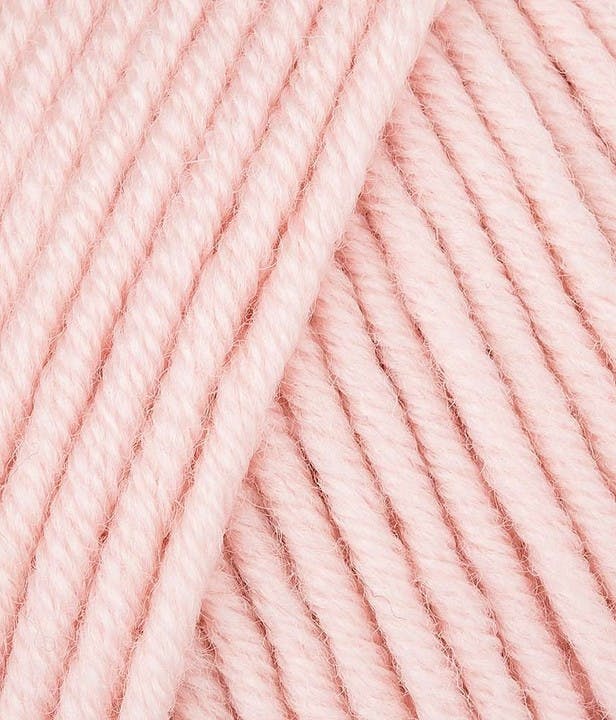
MillaMia Naturally Soft Aran in Blush
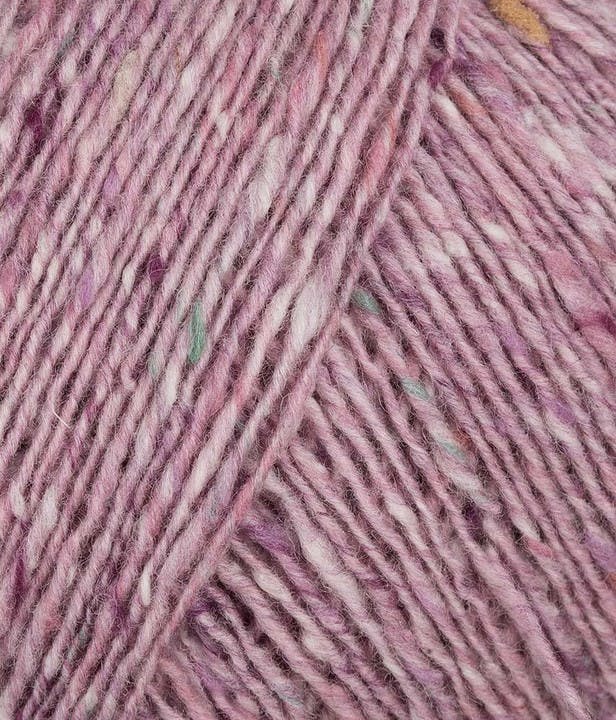
Debbie Bliss Fine Donegal in Winter Rose
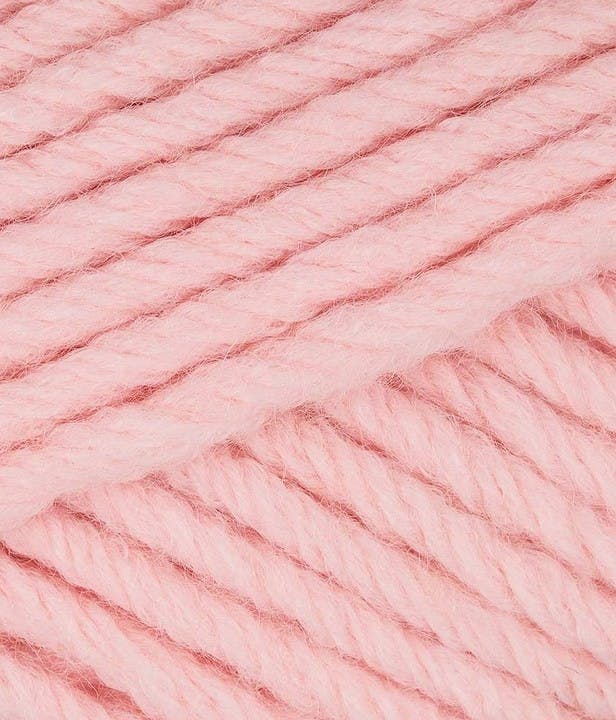
Paintbox Yarns Wool Mix Super Chunky in Ballet Pink
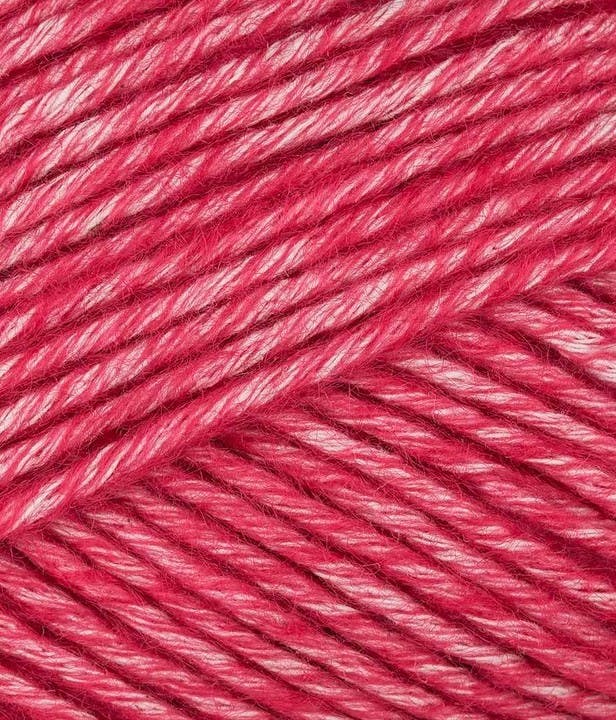
Yarn and Colors Super Charming in Raspberry
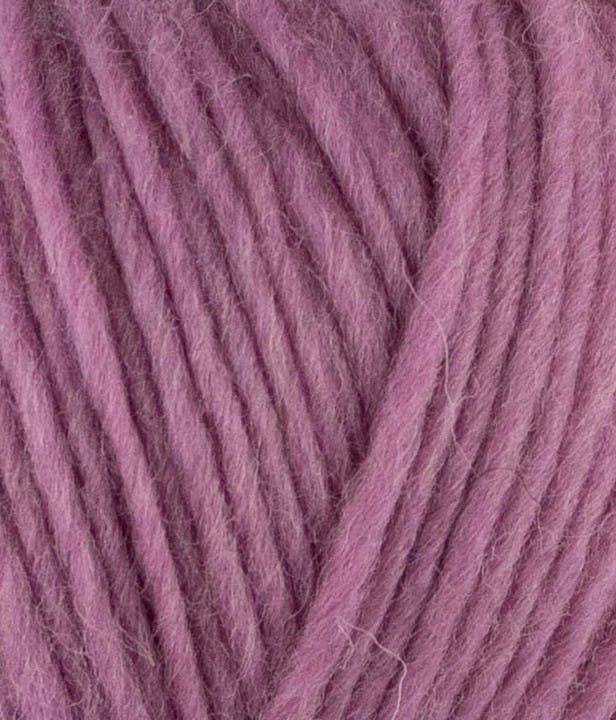
West Yorkshire Spinners Re:Treat in Escape
